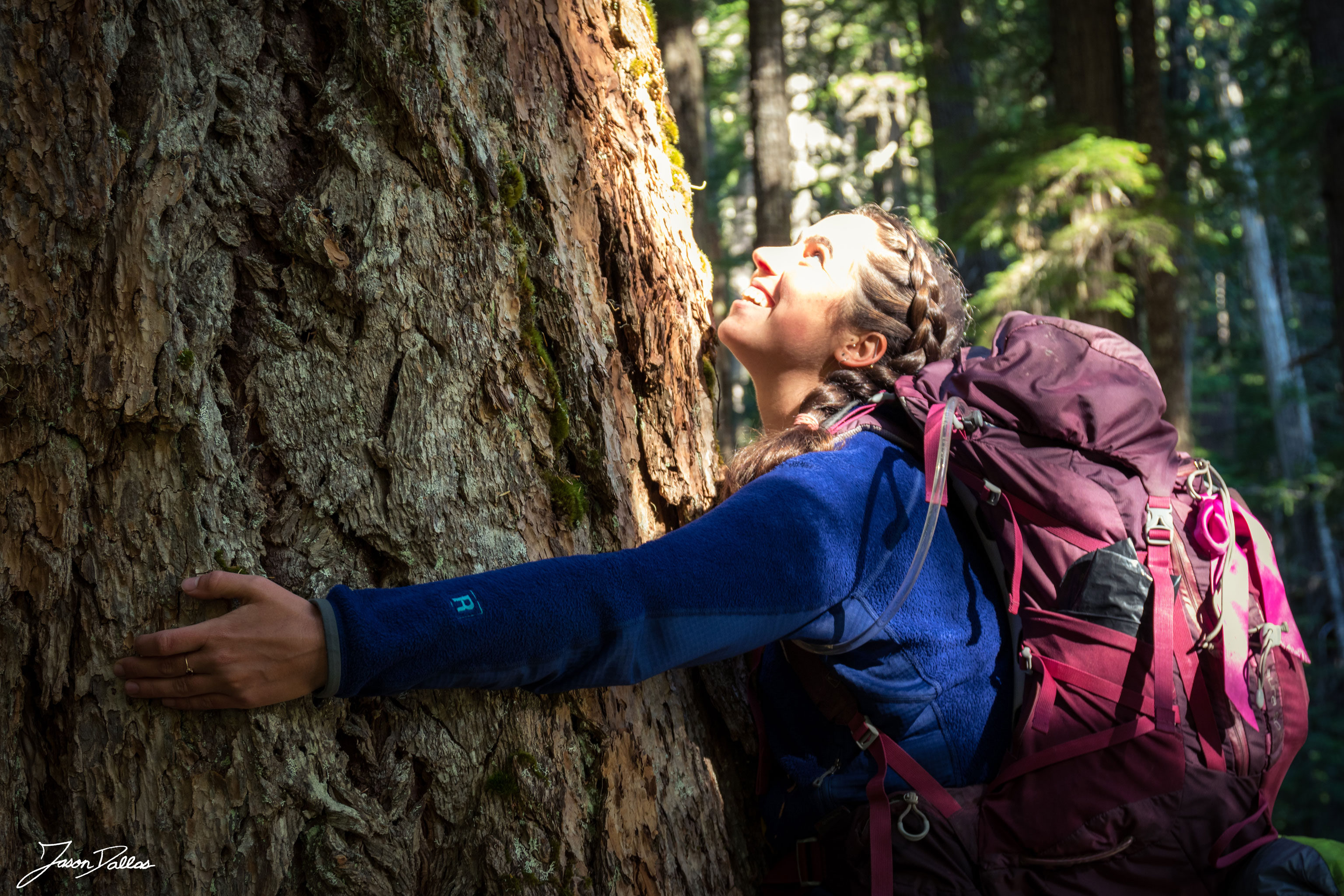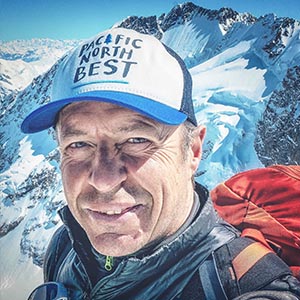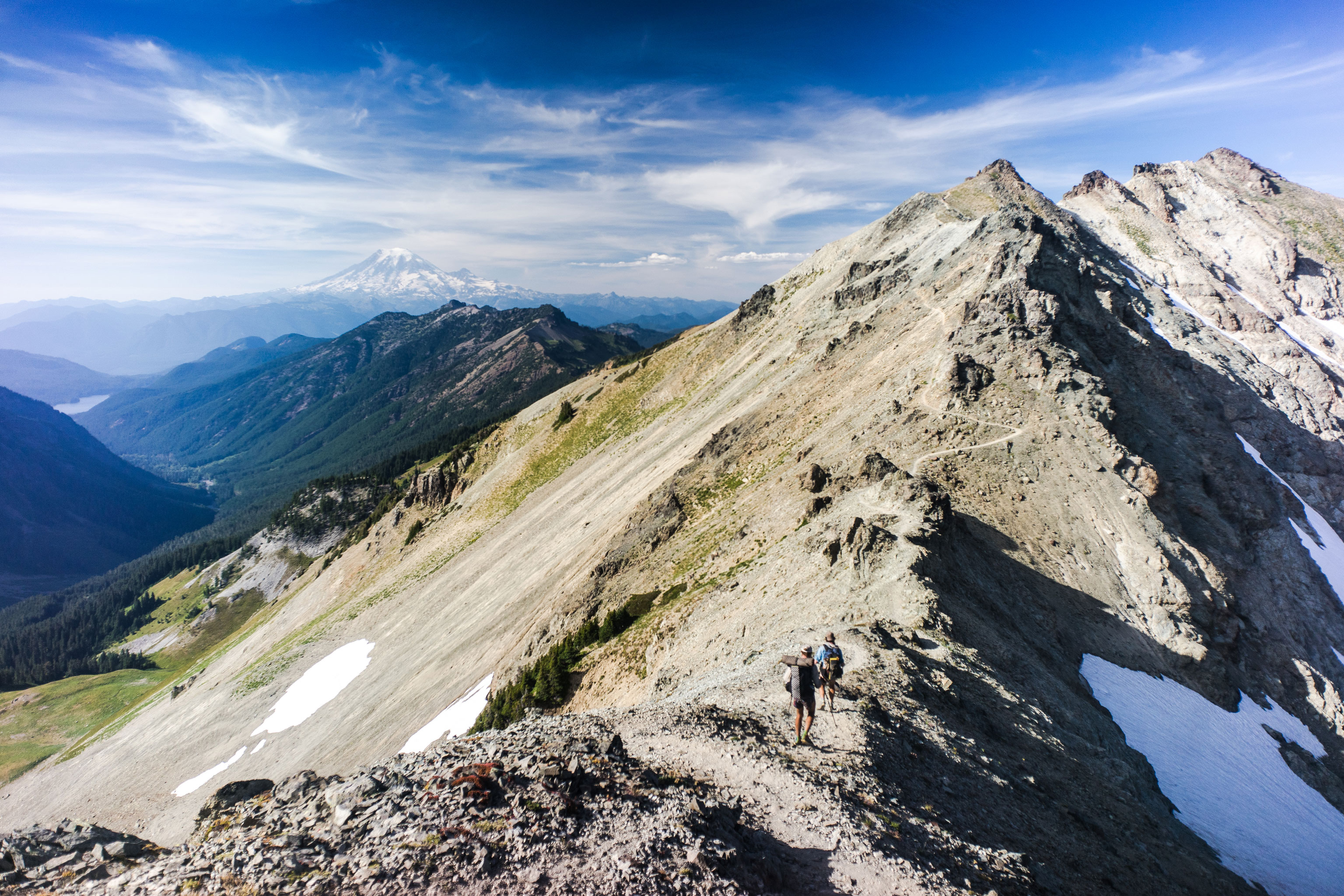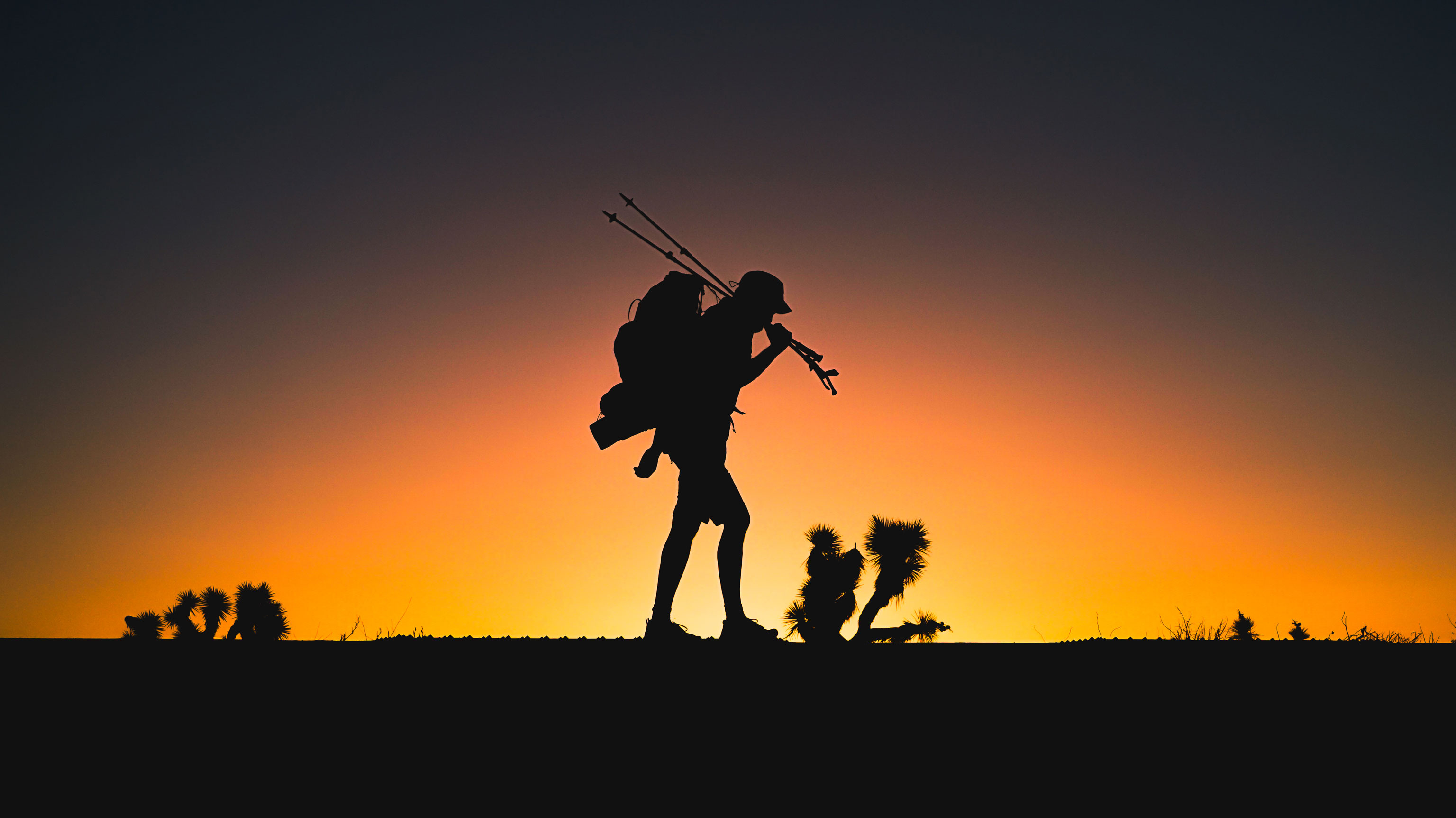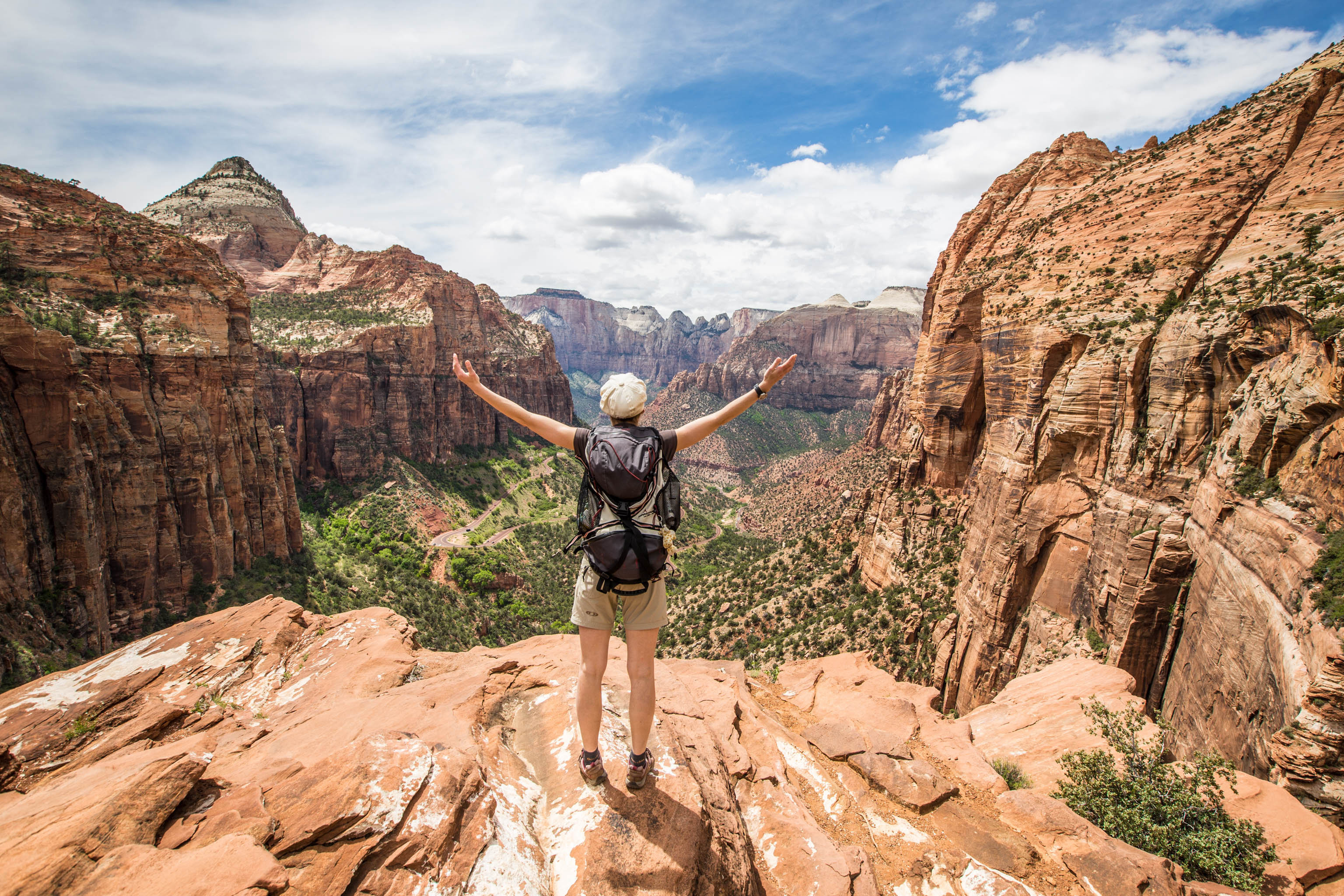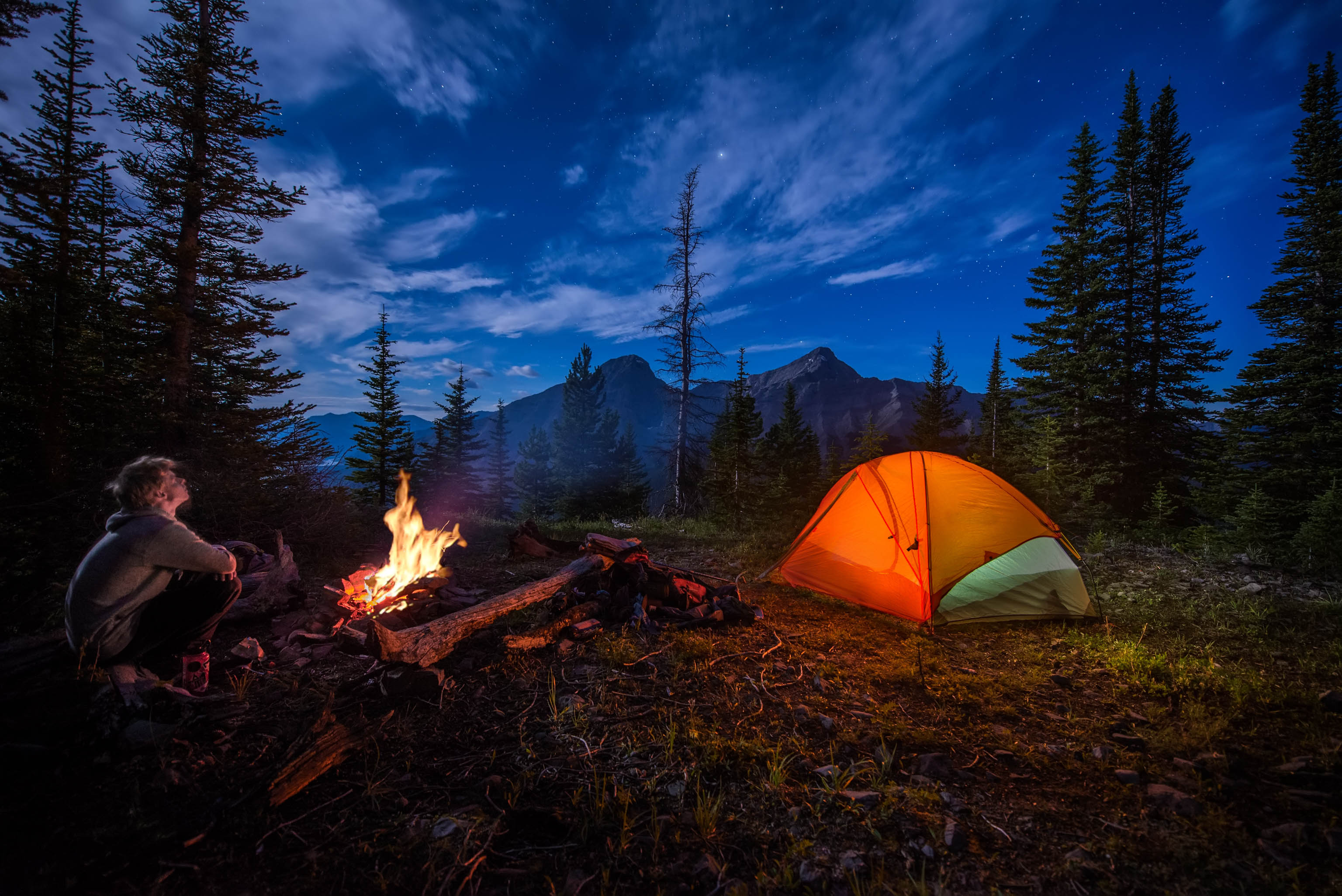Updated on
What’s it like, the first time you embark on a long-distance hike? American thru-hiker Christine Reed explains how she set off, with only the bare minimum of ‘virtual’ prior knowledge, on the 3,500-kilometre long Appalachian Trail in the USA. It proved to be a decision that changed her life.
Christine tells her own moving story – and shares five important tips for anyone thinking of setting out on a long-distance hike.
Thru hiking – Christine’s path to happiness
Further reading on thru hiking:
–> The appeal of long-distance hiking
–> Long-distance walks: 12 classic trails
–> Long-distance hiking trails: 14 insider tips
–> Interview with a long-distance hiking expert
–> Getting ready for a thru hike
–> 10 stunning thru-hiking facts
“I was working as a clerk at a health insurance company,” says the 31-year-old. Standing at the start of the 3,500-kilometre long Appalachian Trail in 2015, she wasn’t exactly what you’d call a stereotypical ‘thru hiker’. She doesn’t have highly toned calf muscles or tanned skin, or a backpack and well-worn outdoor gear bearing the scars of countless hours hiking through the dust, mud, forests and deserts. “My life up to that point was more typical of your average lazy American,” remarks Christine.
Is thru hiking something for a beginner like her?
Tip #1: "Be prepared, but don’t overdo it with your preparations, or your planning. It’s important to stay flexible."
Christine Reed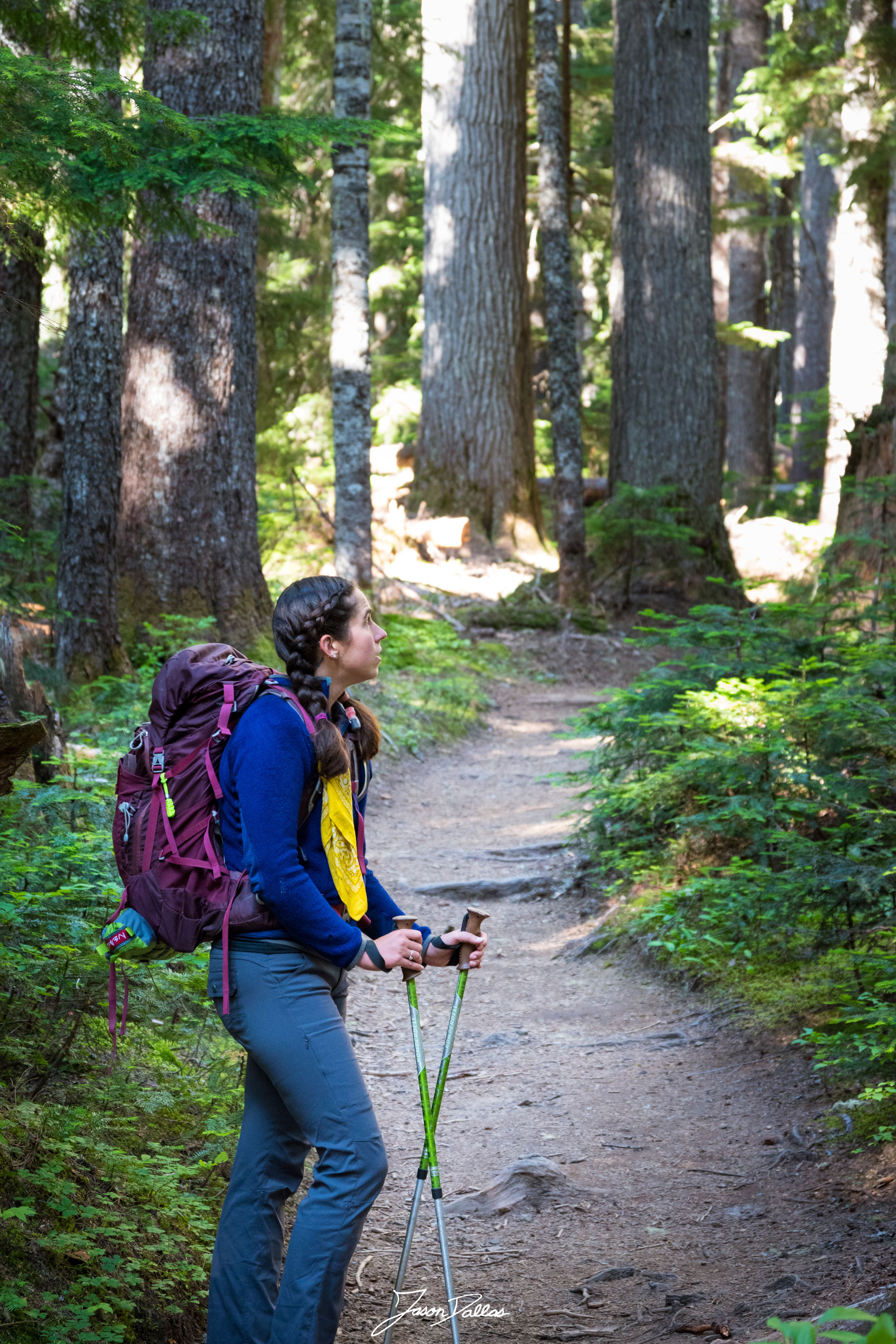
In high school, Christine found even lifting the lightest weights in a fitness class too much effort and developed an eating disorder. Throughout college she worked part-time in restaurants. There were after hour lock-ins. Parties and alcohol flowing – too much of both. It was escapism from a world without any highs or lows. Things carried on in the same vein when she started her job as a clerk in a health insurance firm.
One day, Christine found out that her mother had cancer. “She was severely overweight, hardly ever exercised,” she explains. “I thought, if I’m not careful, I could end up the same.” While surfing the web she stumbled across forums for outdoor fanatics. “They were discussing the best way to dehydrate spaghetti sauce and make your own dried food. Stuff that I’d never even considered before. I was fascinated with the level of detail this community went into for their preparations.”
So Christine throws herself into the virtual world of thru hiking and stumbles upon the Appalachian Trail, one of the oldest long-distance trails established in the USA. It dawns on her that this could be her way out of this latent malaise.
She meticulously combs the Internet for a year, googles ‘first thru hike’ and ‘hiking for beginners and advanced hikers’ countless times, puts together food packages for six months, and sends them to resupply points along the trail. She uses an internship with the Appalachian Trail Conservancy trail maintenance organisation to get a taste of the thru hiking community.
Tip #2: "Becoming physically fit is hard. You also have to be strong mentally."
Christine ReedThen it’s time. After a 16-hour trip by Greyhound bus, Christine is standing at the start of the Appalachian Trail. She spends the night in a basic shelter. She feels sick, broken. Is it stage fright? That thing about the bears has thrown her. When Christine told some of her friends about her plan, they asked her if she was going to be carrying a gun. “I was fine about it all, brushing it off and acting all strong,” she admits. But now that it’s for real, she feels less confident.
“Physically, I really wasn’t prepared,” she admits. “I always thought I’d just make a start and my physical fitness would develop by itself.” She hadn’t even tried carrying her backpack fully laden for a whole day. “Woah, it was way, way heavier than I thought,” she recalls. At the start, she barely covers 10 kilometres each day.
But physical fitness isn’t the only challenge she has to face. She spent the months before working in Yosemite Valley – one of the most scenically beautiful places in the world. By comparison, the medium-sized mountains and forested undulations of the Appalachians are a disappointment. She’d pictured it differently.
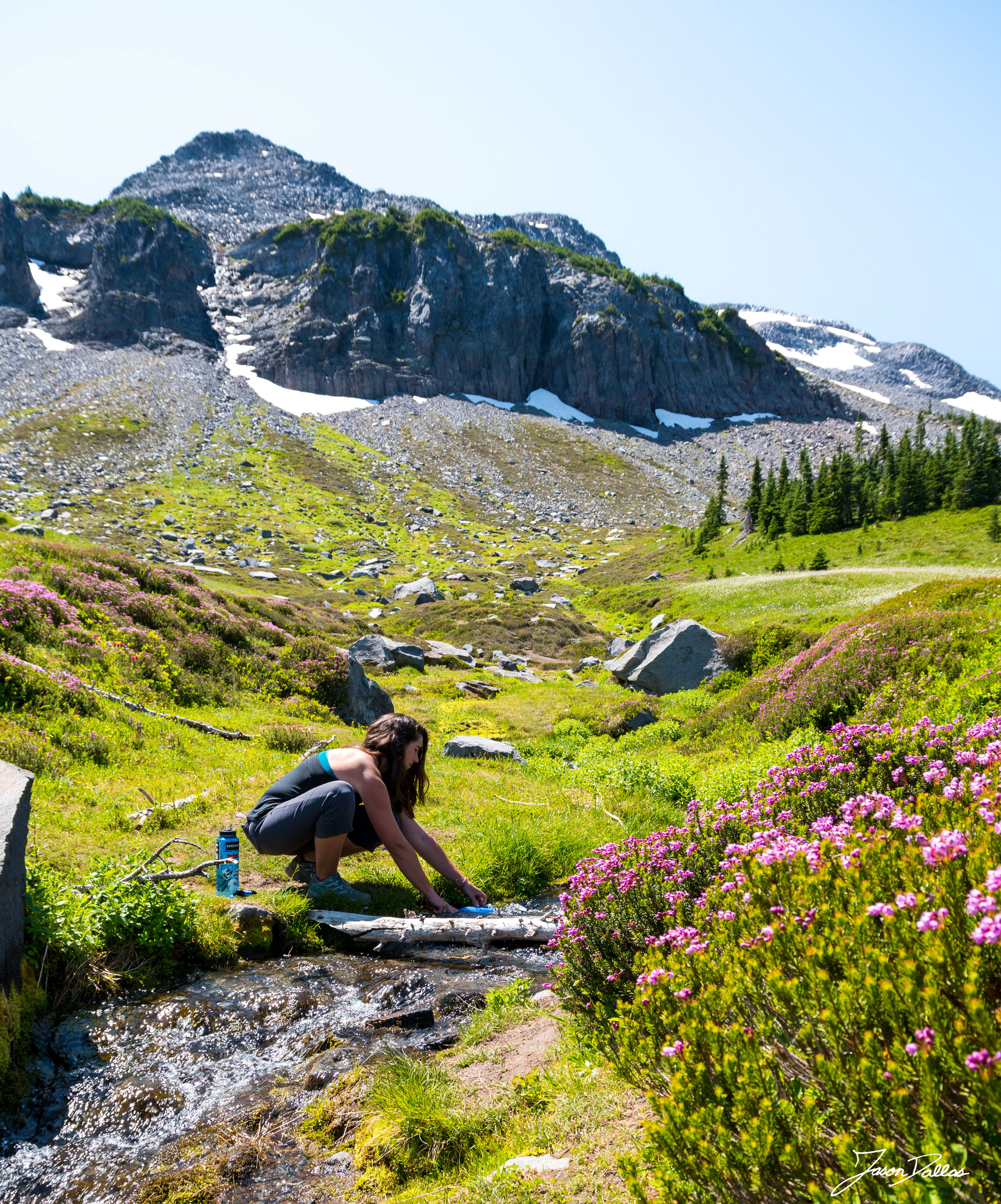
“The morning hours were cold, and during the day it was hot and muggy,” Christine remembers. “That pushed me beyond my mental comfort zone too.” But despite that, she felt her connection to the natural world start to grow. “It gave me a tiny insight into how I might have lived thousands of years ago. What our bodies are meant for.”
Three or four weeks in, Christine is fitter and feels more confident. In her head too. Hike, eat, sleep – repeat. “You don’t have to worry about what you eat or what you wear. There isn’t any choice anyway. In our affluent society, we’re constantly having to weigh up hundreds of options. The simplicity of days on the trail helps heal that decision fatigue.” All you’ve got is what’s in your backpack. “I even got used to my stinky T-shirt.”
It was that level of simplicity that helped her discover the psychological benefits of hiking. “I had done a meditation course a few months prior to setting out,” explains Christine. “While on the trail, I soon realised that hiking is like meditating.” Nothing to distract her. “You’re not just discovering the landscape. You begin to discover yourself.” No electronic escape from reality. No social media, no TV.
Tip #3: "Go at your own pace. Don’t be influenced by other hikers."
Christine ReedEvery day Christine meets other thru hikers. In the evenings, 40 or 50 hikers gather around the shelters. But she still sometimes feels like she’s a hermit. She says: “I had expected to have some kind of spiritual awakening.” It does not come. But still, there is a change taking place in her. Then, she hears that her mother has died. Her days on the trail are filled with sadness. Christine is aware that at least she has time to grieve.
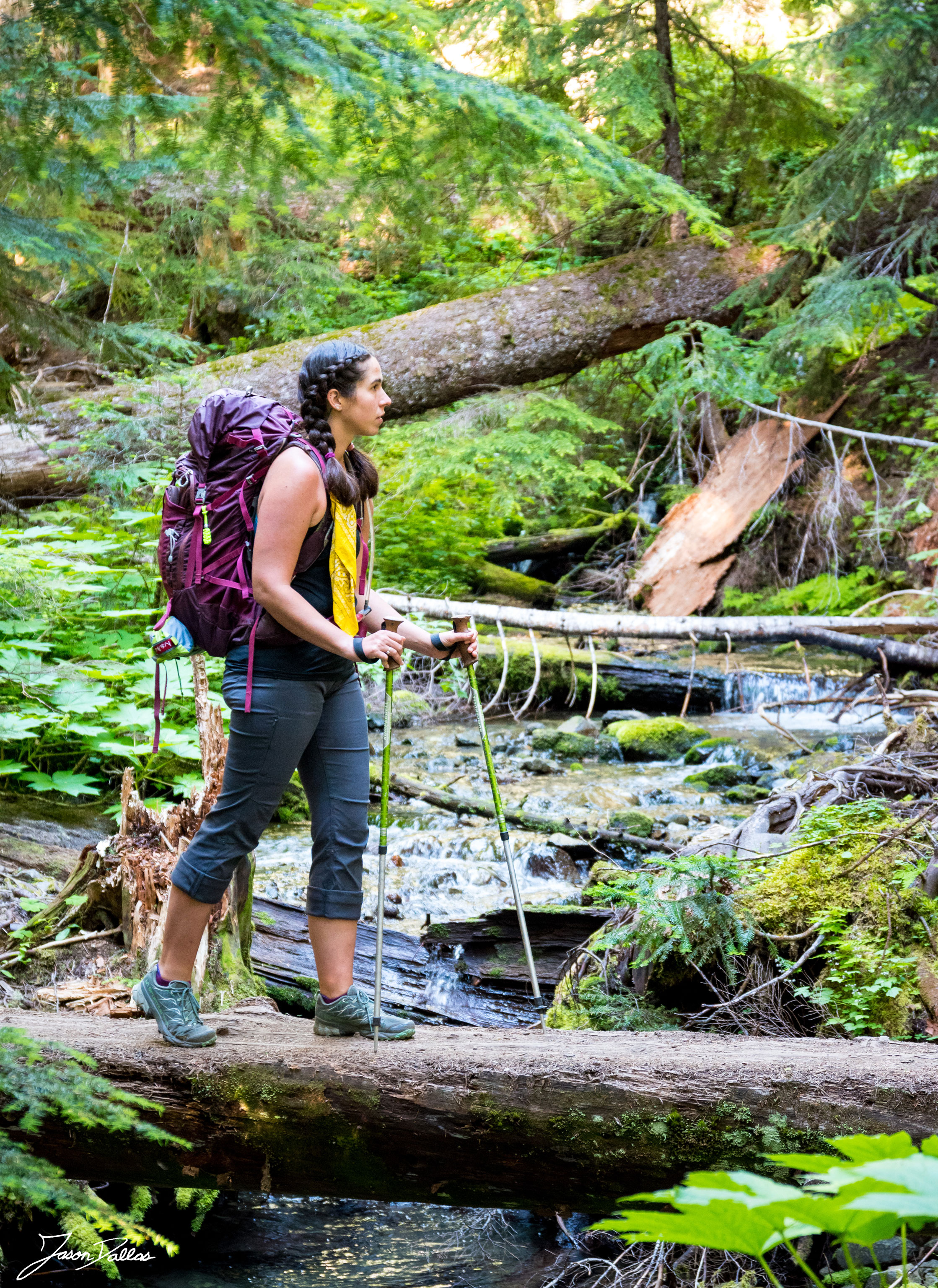
All the while, she thinks a lot about “the person I want to be.” Other hikers also help her. The thru hiking community becomes Christine’s network. They’re connected in a bigger way: “We all want to find something inside.” For one person that might be to do with the past, for the other it’s finding clarity about their future.
“Less than ten percent of people probably think about stuff like that so deeply,” she estimates. “Imagine if suddenly everyone around you was living mindfully. How amazing to be surrounded by people on the same mission!”
70 days and 650 miles into the Appalachian Trail, Christine stops her hike. She wants to be home for her mother’s funeral. She’s only one third through the trail, but doesn’t see it as a failure.
Physically and mentally, Christine learnt just how important it is for our input and output to be balanced in life. “Before, I never got the connection between what I eat and how I feel.” The same goes for her head. “I definitely found happiness on the Appalachian Trail! It has a lot to do with how simple life is when you’re thru hiking,” explains Christine.
Tip #4: "The trick is to find the positive in all the challenges you face."
Christine Reed“I realised how empty and absurd all that stuff is that we normally surround ourselves with.” And she also appreciated that there must be other ways of coming to that realisation. “Hiking culture isn’t a unique kind of saintly religion. It doesn’t matter what you do, so long as you free yourself from all those distractions and allow your head to calm down, switch off.”
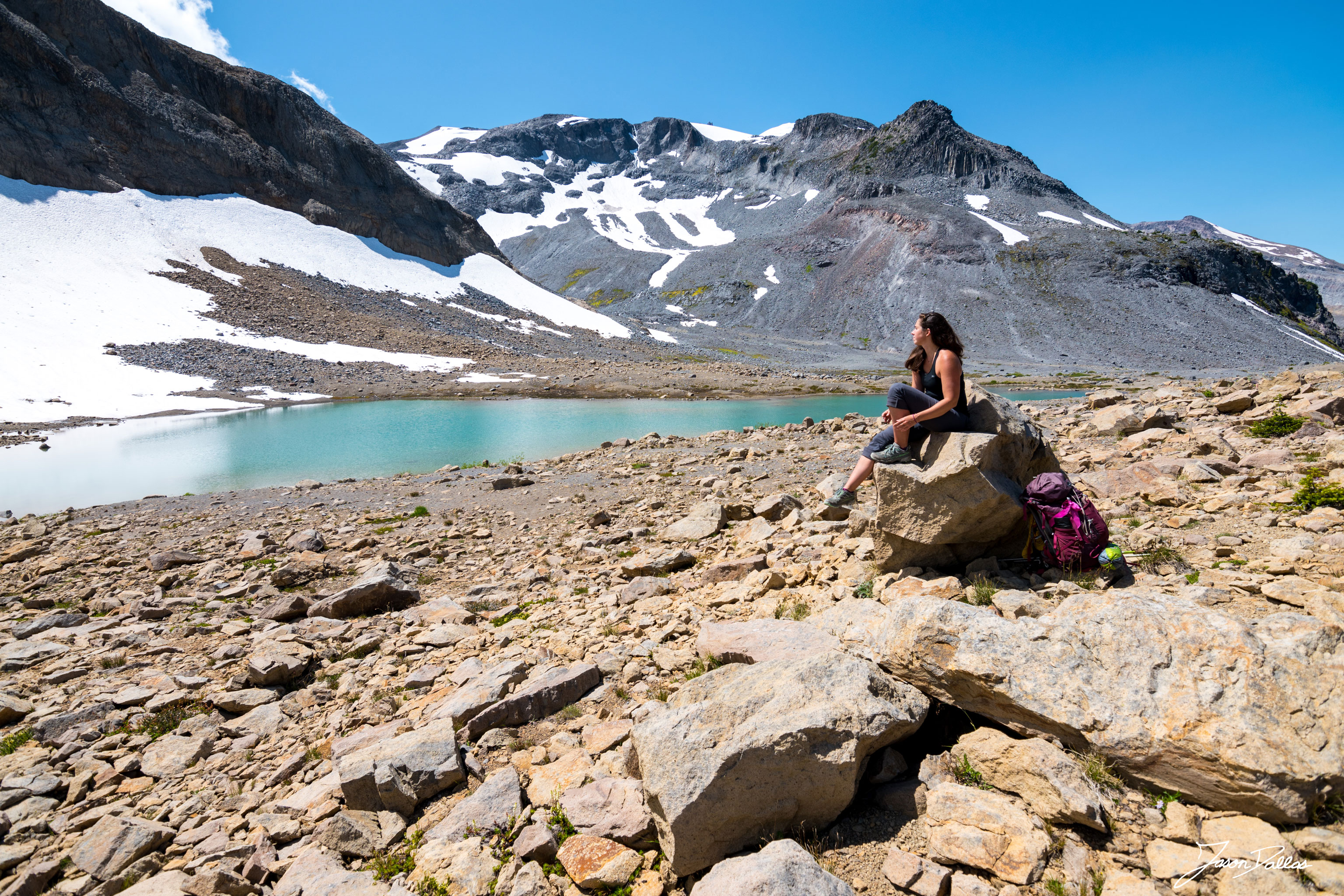
Tip #5: "Comfort is king. Only ever wear footwear that feels really good on your feet."
Christine ReedAfter the Appalachian Trail, Christine never went back to her job as a clerk at the insurance company. She secured temporary work in a supermarket and organic market. Her van was her home for several years. Today, she lives in Denver, Colorado with her partner and writes books about hiking, and features in hiking podcasts. And she’s now a seasoned ‘outdoors expert’, just like those thru hikers who initially inspired Christine to take on the Appalachian Trail.
She’s drawn to thru hike trails as much as ever though, and in autumn 2021 she’s planning to undertake the 800-kilometre Colorado Trail from Denver to Durango. At some point, she also wants to hike the 3,000-kilometre Te Araroa Trail in New Zealand.

